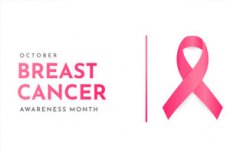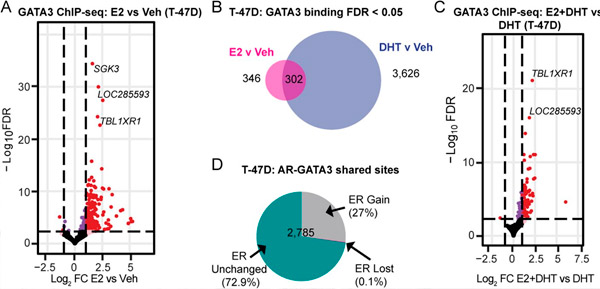New publications
New research supports the efficacy of androgen treatment for breast cancer
Last reviewed: 02.07.2025

All iLive content is medically reviewed or fact checked to ensure as much factual accuracy as possible.
We have strict sourcing guidelines and only link to reputable media sites, academic research institutions and, whenever possible, medically peer reviewed studies. Note that the numbers in parentheses ([1], [2], etc.) are clickable links to these studies.
If you feel that any of our content is inaccurate, out-of-date, or otherwise questionable, please select it and press Ctrl + Enter.

A study by scientists at the University of Adelaide has provided new insights into the fight against breast cancer.
The laboratory study was led by Associate Professor Theresa Hickey and Dr Amy Dwyer, and Professor Wayne Tilley from the Dame Roma Mitchell Cancer Research Laboratories, in collaboration with researchers from Cancer Research UK (CRUK), the University of Cambridge (UK) and Imperial College London.
"Our study used a relatively new technology developed by the CRUK team, which was used to identify GATA3 (a transcription factor critical for the embryonic development of various tissues) as an important interacting partner of the androgen receptor in breast cancer," said Associate Professor Hickey.
A study published in the journal Genome Biology found that when the androgen receptor interacted with GATA3, breast cancer cells became more functionally mature.
"This study has identified an important mechanism by which androgen receptor activity exerts anti-cancer effects in breast cancer," said Associate Professor Hickey.
"Understanding how the androgen receptor exerts anticancer effects in the breast is important because the opposite occurs in the prostate, where androgen receptor activity promotes cancer development."
The discovery supports work by a research team from the Dame Roma Mitchell Cancer Laboratory, led by Professor Tilley, published in The Lancet Oncology in February. This clinical trial showed that the androgen receptor stimulant drug enosarma was effective against oestrogen receptor-positive breast cancer, which accounts for up to 80% of all cases of the disease.
"The information from the GATA3 trial supports the use of androgen receptor stimulating drugs for the treatment of oestrogen receptor-positive breast cancer (as reported in a recent article in The Lancet Oncology) and provides laboratory evidence to support this therapeutic strategy for other non-oestrogen receptor-positive subtypes of the disease. This includes the triple-negative subtype of breast cancer," Associate Professor Hickey said.
"Androgen receptor-stimulating drugs are not yet part of mainstream treatment for any type of breast cancer, but are gaining popularity for treating estrogen receptor-positive disease.

Hormonally mediated changes in GATA3 binding to chromatin in estrogen receptor (ER)-positive breast cancer cells.
A) FDR-adjusted p-value and log2FC of GATA3 chromatin binding in T-47D breast cancer cells treated with estradiol (E2) compared to control (Veh).
B) Venn diagram showing the intersection of significantly enriched GATA3 binding sites upon exposure to E2 or dihydrotestosterone (DHT).
C) FDR-adjusted p-value and log2FC of GATA3 chromatin binding events with concomitant hormone therapy compared with DHT alone.
D) Differential ER binding at common sites of AR and GATA3.
Source: Genome Biology (2024). DOI: 10.1186/s13059-023-03161-y
"The GATA3 study provides evidence that this new therapeutic strategy will work by providing an explanation for how it works."
Associate Professor Hickey said she looked forward to further developments based on this research. "While the current study focused on the interaction between the androgen receptor and GATA3, the new technology we used to detect this interaction has identified many other factors that interact with the androgen receptor in breast cancer cells," she said.
"We are currently investigating the importance of these other factors in mediating androgen receptor activity in breast cancer."
